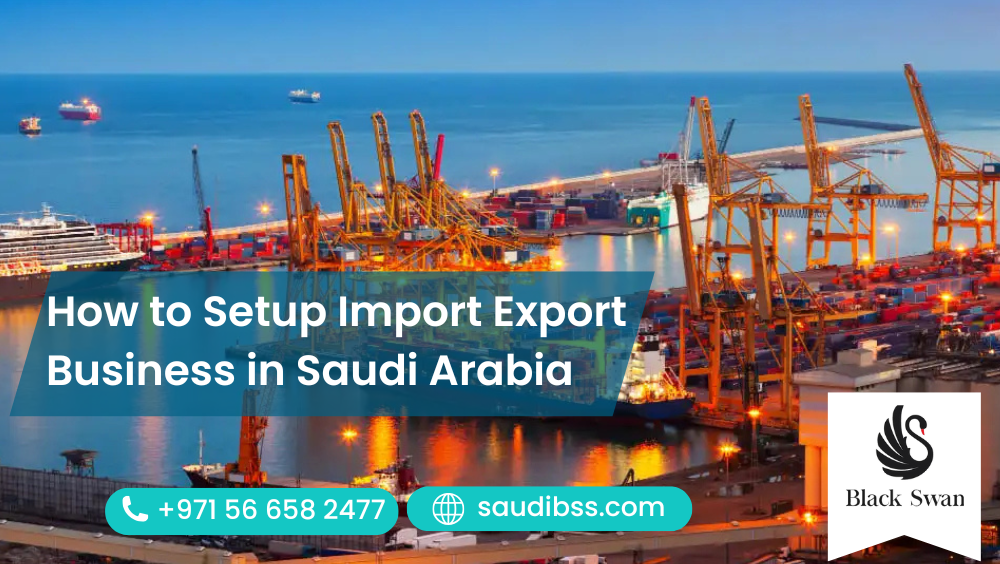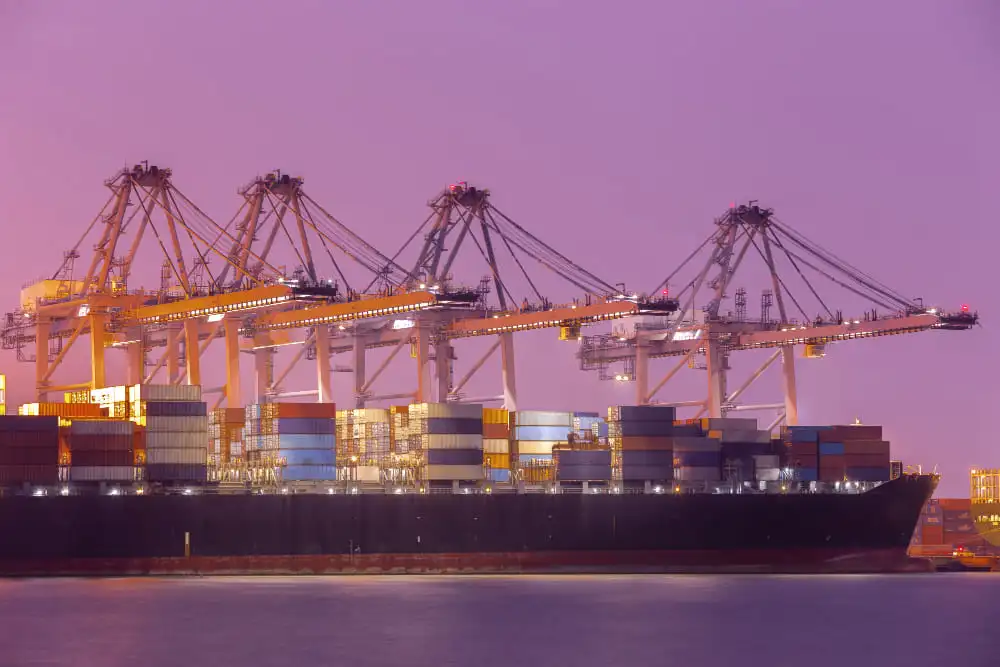
As an expat business owner in Saudi Arabia, navigating the legal and regulatory landscape can be challenging. A significant area of confusion, particularly for business owners, is Saudization and its implications for the payroll system. If you don’t know what Saudization means and how it applies to your business then you’re not alone. This session we’ll discuss all the essential information about Saudization and the effective way to deal with the payroll system.
What is Saudization?
Saudization, officially known as the Saudi Nationalization Program, Saudization is a policy by the Saudi government to decrease the Kingdom’s dependence on foreign employees, and increase the recruitment of Saudi nationals. The programme provides more job opportunities for Saudis in other sectors. It is not only a government effort; businesses must adhere to Saudization policies to stay in good standing. You, as an expat business owner, need to know about Saudization as it impacts hiring practices, employment quotas and in essence how many local people you need to hire in your workforce. Companies that are not able to meet the necessary Saudization quotas may be subject to fines, penalties, and limitations on business operations. Looking for a Company Formation in Saudi Arabia?How Does Saudization Affect Expat Business Owners?
Saudiization as a program mandates quotas for Saudi employees depending on the employee numbers and your corresponding industry. For example, companies with more employees are required to employ more Saudis than smaller companies. These quotas may be industry specific as well, including retail, construction, and hospitality. Furthermore, in case you do not comply with the Saudization requirements, your business might face issues like inability to renew business permits, inability to apply for new visas for foreign employee, and potential refusal to be awarded certain government contracts. That makes knowledge of the rules and maximization of hiring strategy important for expat business owners.Payroll System: Key Considerations for Business Owners
Besides Saudization, any business owners will need to ensure compliance with Saudi Arabia’s payroll regulations. The payroll system in KSA is simple and easy to use but it can be complicated if you don’t pay attention and make mistakes. So, here are the top things you should know.Salary and Wage Regulations
Payment of salaries, wages, and allowances in Saudi Arabia Shadi Al-Shahrani. All payments must be made in Saudi Riyal (SAR) and should be in accordance with local labor regulation. This means that all wages due must be paid on time and documented properly in your payroll system. Moreover, employers should be transparent in salaries so that they can avoid any conflict with employees.Social Insurance Contributions
In Saudi Arabia, all employees as well as employers are bound to contribute to General Organization for Social Insurance (GOSI). This is a compulsory contribution, which covers pension, unemployment and work injury insurance. These contributions must be accurately computed and deducted for both Saudi and non-Saudi personnel. These contributions are based on a percentage of the employee’s monthly salary, and the rate can differ based on the classification of the employee.End-of-Service Benefits
ESB end of service benefits, this amount is paid out to employees on the way out the door, and is also an important consideration for business owners. The way these benefits are calculated for Saudi employees depends on the length of service and the final salary. The same principles apply to foreign employees, although there may be slight variations depending on the terms of their contracts.Payroll System Automation
Manual payroll processing can take a lot of time and can easily go wrong. To ease the process of payroll, several businesses in Saudi Arabia have payroll software solutions in place, which help automate salary calculations including deductions and social insurance contributions. Saudi systems can be automated to keep count of the number of Saudi employees to comply with Saudization regulations and help ensure the business meets its quotas.Taxation and Compliance
Saudi Arabia does not levy income tax on individuals but businesses are subject to several other taxation and compliance obligations. These are VAT (Value Added Tax) on goods and services that get accurately processed through your payroll system. Furthermore, the Saudi government is tightening the compliance requirements to make sure businesses are complying with the Saudization laws and other labor laws. Looking for a Consulting License in Saudi Arabia?How to Meet Saudization Targets
It can be difficult to reach Saudization targets, although it is certainly doable with a well-defined road map. Here are some suggestions to keep you compliant:Hire More Saudi Nationals
The easiest way to comply with Saudization is to increase your workforce comprising Saudi employees. This requires a shift in your recruitment philosophy to focus on sourcing candidates in Saudi and providing them with jobs that correlate with their capabilities.Provide Training and Development
The local workforce might not, however, always have the necessary skill set for certain roles. In such instances, train and develop young Saudi Arabs on how to become reliable employees. This is important not just in terms of Saudization, but also in efforts to develop the local talent pool.Consult with HR Experts
If you have doubts about Saudization rules, or how you should manage payroll, consult local HR experts, or hire a payroll management service. Knowing the local laws is one thing, but making sure that your business is compliant while managing payroll is another thing that these professionals can help with. Get details about Business Registration Service in KSA.Take Action Today!
As an expat business owner in Saudi Arabia, you must know about Saudization and the payroll system. However, you can help prevent penalties by keeping up to date with regulations and build a more sustainable, efficient workforce. Looking to take your business to the next level? Make sure your hiring strategies align with Saudization goals and that your payroll processes are efficient and compliant. You can take some professional advice to make your operations easy and free from any worries about new rules in KSA.FAQ
What is Saudization and why is it important for expat business owners?
Saudization is an employment policy in Saudi Arabia. If you don’t comply with quotas, you’ll be confronted with fines and visa restrictions and for expat business owners this is important to know.
How does Saudization impact my hiring practices in Saudi Arabia?
As part of your expansion, you must adhere to specific employment quotas for local Saudi employees that shape your talent acquisition process and the makeup of your workforce.
What are the main components of the payroll system in Saudi Arabia?
The payroll system can also set a salary payment, GOSI deduction, end of service benefits, VAT compliance, etc.
Do I need to contribute to social insurance for expat employees?
Yes, companies need to provide GOSI for Saudi workers, but foreign workers are only covered for job injuries.
How can I ensure compliance with Saudization and the payroll system in my business?
Employ more Saudi nationals, offer training, implement automated payroll management solutions, consult with HR professionals, etc.

Saudi Arabia (KSA) is emerging as one of the preferred business and innovation hubs. That’s when many entrepreneurs and investors are scouting fresh business options as the country keeps diversifying away from oil. So, What are the most trending businesses in KSA? Now, let’s dive into the sectors that are catching media airwaves attention in the Kingdom.
E-Commerce and Online Retail
The first thing to note is that e-commerce is booming in Saudi Arabia. Thanks to high internet usage and a young demographic, e-commerce is climbing to new heights. When it comes to electronics, fashion and groceries, many tend to prefer shopping from the comfort of their homes. Platforms like Noon, Amazon.sa are growing fast. Additionally, every other day new local online stores are being launched this new opportunities for small and medium businesses.
Fintech and Digital Payments
Another popular sector is financial technology or fintech. As Vision 2030 promotes cashless payment, digital wallets and payments applications are being widely accepted. Apps such as STC Pay and Mada Pay gained notoriety. Additionally, fintech startups are also getting great backing from both government programs and private investors. There’s lots of room therefore for innovative solutions such as peer-to-peer lending and online banking and investment apps. Get details about Fintech Company Registration Service in Saudi Arabia.
Tourism and Entertainment
The Kingdom of Saudi Arabia invests heavily in tourism and entertainment. The Kingdom is welcoming international visitors as part of its Vision 2030 plans. and his projects are grabbing global attention. Because of this, hospitality businesses, travel agencies, event management companies and tour operators are in high demand. In addition, many are enthusiasts of local cultural experiences or eco-tourism, both hot trends.
Health and Wellness
The healthcare industry is also experiencing tremendous growth. Now people are more conscious about their health, so the demand for fitness center, healthy food brands and wellness clinic is a lot more. Telemedicine and online pharmacy services are also trending all over the Kingdom. Business is booming in this field, whether we’re talking about physical fitness or mental well-being. Looking for a Health Care Company Registration Services in KSA?
Renewable Energy and Green Solutions
KSA is focused on sustainability the government is promoting renewable energy projects, such as solar energy and wind energy. Firms that provide green energy services, recycling solutions and energy-efficient technologies are booming. Sustainable entrepreneurs have a unique opportunity to pioneer market leadership.
Real Estate and Construction
The real estate and construction sectors are humming with activity as urban development continues. Many mega-projects are going on leading to an increase in demand for construction services, property management and smart home technologies. While desktop housing options and new-age design are making waves in the residential and commercial market. Get details about Real Estate Company Registration Services in KSA.
Education and Online Learning
Education is also in the midst of a dramatic transformation. Online learning has emerged, and numerous organizations offer virtual classes, courses, and training programs. Digital education platforms, from school tutoring to skill-based courses for adults, are on the rise. In addition, with governmental initiatives backing tech-driven learning solutions, this happens to be a very promising field to invest in, as well.
Food and Beverage Industry
The Foods & Beverages (F&B) industry is always in the need but now we have more innovations. With trends like cloud kitchens, food delivery apps, organic cafes, international cuisine restaurants, etc. Consumers in Saudi Arabia are accustomed to experimenting with different dining concepts, particularly those emphasizing product quality and convenience. Thus this sector still has the great scope of growth.
Beauty and Personal Care
Saudi Arabia is experiencing rapid growth in the beauty sector. With demand for anything and everything from skincare products to salons and grooming services growing. There are numerous domestic and international brands entering the market with online beauty store performing significantly well. The rise of this sector can also be attributed to influencers and digital marketing.
Logistics and Delivery Services
But with the growing popularity of e-commerce, logistics and delivery services have become more essential than before. Any business operating online needs fast, reliable delivery. Businesses focused on smart logistics solutions and warehousing and last-mile delivery are in demand. This industry is getting serious attention as demand grows. Looking for a Logistics Company Registration Services in KSA?
Ready to Start Your Business in Saudi Arabia?
This is the right timing for entry into Saudi Arabia. Couple that with a friendly business environment, increasing demand from various industries, and strong government support, and there are opportunities to be found everywhere. Explore today to get started, whether it is for planning a setup your business. Find your niche in those trending industries and make your idea a great success story here in KSA.
FAQ
What are the most popular business sectors in Saudi Arabia today?
Leading trending sectors in KSA top trending sectors in KSA e-commerce fintech tourism health renewable energy and education.
Why is e-commerce booming in KSA?
The young, tech-savvy population and high internet usage has made online shopping well-accepted and popular.
Is it easy to start a business in Saudi Arabia?
Yes, business setup process has also recently been made easier and faster by the new reforms and support programs.
How does Vision 2030 affect business trends in KSA?
Vision 2030 encourages economic diversification, spurring growth in non-oil sectors such as tech and tourism.
What business ideas work well for small startups in Saudi Arabia?
Low-cost options include online stores, food delivery, wellness centers and mobile app services.

The taxation system for the Kingdom of Saudi Arabia (KSA) is one that both residents and businesses should definitely understand. In recent years, the Saudi government has undertaken various initiatives to diversify its economy. These changes consist of increased enforcement of existing taxes with the addition of new taxes. If living, working or investing in KSA, it is important to know how the taxation system works.
No Personal Income Tax
First and foremost, KSA does not implement personal income tax for salaries and wages for individuals. This is just one of the reasons why many expats choose to work in the kingdom. They don’t have to pay income tax, but depending on their business, they still have to pay VAT (value-added tax), Zakat and more. Looking for a Business Setup in Saudi Arabia?
Value-Added Tax (VAT)
VAT is among the primary taxes in KSA and was introduced in 2018. The VAT was initially set at 5% and later raised to 15% in July 2020. It taxes most industries and services. When you pay for electronics, groceries, or even book a hotel room, VAT is typically included in the price you see.
However, some goods and services are either exempt from VAT or qualify for a zero rate of tax. This includes essentials food, healthcare, and education and exports. Businesses with taxable sales exceeding the threshold set by ZATCA are required to register for VAT.
Zakat – Islamic Wealth Tax
Along with VAT, local Saudi-owned businesses must also pay Zakat. This is a religious duty and is computed in accordance with a business’s net worth. Zakat is normally 2.5% of the adjusted net assets of the company. This tax being applicable only to foreign shareholders, it complements the kingdom’s so-called tax stacked on Saudi nationals and GCC-owned entities.
However, foreign owned companies are Zakat free. Instead, they are liable for corporate income tax. Get details about Business Establishment in Riyadh KSA.
Corporate Income Tax
For foreign investor’s owned companies, the corporate income tax rate in KSA is at 20% on net profits. Even in this regard, understanding that this tax is not for all sectors (except exempted sectors as well, for a few sectors in economic cities or free zones)
Additionally, oil and hydrocarbon companies have a higher tax rate of up to 85%, depending on their revenues. Another consideration for businesses is withholding tax, which is applicable when making payments to non-residential companies or individuals.
Withholding Tax
When a Saudi company pays a foreign company for services such as consultancy or management, it is required to withhold a percentage of the payment as withholding tax and pay that amount to the government. The percentage can range from 5% to 20% based on the type of service. This will allow the government to collect tax revenue on international transactions.
Excise Tax
KSA has also introduced excise tax on products harmful to health or the environment. These are tobacco, energy drinks, and soft drinks. Such taxes can be as high as 100%, particularly for tobacco and energy drinks. This policy intends to lower the consumption of harmful goods and provide additional funding for public services. Are you looking for a Business Registration Service in Riyadh KSA?
Real Estate Transaction Tax (RETT)
To stimulate the housing market, the government introduced the Real Estate Transaction Tax (RETT) in 2020. Its sale or transfer is then subject to its flat real property 5 percent tax. But some transactions in properties, such as inheritance or gifts to family members, could be exempt.
Filing and Compliance
Businesses and individuals engaged in any taxable activity must ensure compliance with the filing requirements. VAT returns, Zakat filings and corporate tax payments have tight deadlines by ZATCA. The late payment of those amounts can incur penalties.
Fortunately, ZATCA has simplified this process through its online portal and centralized its services to allow taxpayers to file returns, register for taxes, and also make payments all through one means. The portal also offers helpful tools and calculators. Are you searching for a Business Setup Consultants in Riyadh KSA?
Double Taxation Agreements
To prevent being taxed twice on the same income, KSA has entered double taxation treaties with several countries. These agreements help companies and individuals obtain tax relief and stimulate foreign investment in the kingdom.
Navigating the Taxation in KSA
In conclusion, the tax regime in KSA consists of various indirect taxes like VAT, Zakat, corporate tax, etc. However, there are more taxes that may apply even without income tax. To remain in compliance with local legislation, and to avoid penalties, businesses should familiarize themselves with the regulations. As the kingdom modernizes the economy, it is essential for those that live or work in the kingdom to remain updated on the developments in taxation.
FAQ
What types of taxes are applicable in Saudi Arabia (KSA)?
The major taxes in the Kingdom of Saudi Arabia (KSA) are Value Added Tax (VAT), Zakat for Saudi-owned enterprises, and corporate income tax for foreign-owned entities. Individuals pay no personal income tax.
What is the current VAT rate in Saudi Arabia?
Currently, the Saudi Arabian VAT standard rate is 15%. It covers most goods and services unless exempt or zero-rated.
Who is required to pay corporate income tax in KSA?
Foreign companies doing business in Saudi Arabia are taxed at a corporate level with income tax, though Saudi owned companies pay Zakat instead of income tax.
Is Zakat mandatory for all businesses in Saudi Arabia?
Companies that are 100% owned by Saudi or GCC nationals, pay zakat; The calculation is done on the company’s net worth.
How can businesses register for tax in Saudi Arabia?
The Zakat, Tax and Customs Authority (ZATCA) requires businesses to register online on its official portal. Timely registration will ensure compliance and help you avoid penalties.

Saudi Arabia has always been attracting foreigners, especially since the Kingdom continues to give new incentives for foreigners there to establish businesses. The Saudi government has introduced many initiatives over the years that aim to uphold and cater for foreign investors and professionals. As a result, it is becoming an attractive space for expats who want to run a business and realize their entrepreneurial dreams.
Economic Diversification Strategy: Vision 2030
A major driving force for the appeal of Saudi Arabia to expatriates is the country’s Vision 2030 an economic transformation blueprint. National transformation program under the Vision 2030, which aims at reducing the kingdom’s dependence on the oil and diversifying in such areas as technology, healthcare, tourism, entertainment, and renewable energy. To encourage foreign business opportunity as part of Vision 2030, the government is implementing measures to provide an incentive space for foreign investment to flourish.
Among the initiatives under the plan are improving infrastructure, easing regulations and attracting international investment. Vision 2030 provides considerable prospects for expats to establish businesses in key sectors contributing to the Kingdom’s economic transition. Looking for a Business Setup Service in Saudi Arabia?
New Business Regulations and Reforms
The Saudi government has been proactive in modernizing its business regulations to make it easier for expats to start and operate companies. One of the most significant reforms is the introduction of the Foreign Investment Law, which encourages expats to invest in various industries, including mining, manufacturing, and services.
Under the new regulations, foreign investors can now hold 100% ownership in certain sectors, eliminating the need for a Saudi partner. This change has opened the door for expats to fully control their businesses, ensuring greater autonomy and decision-making power. Furthermore, expats who establish a business in Saudi Arabia benefit from incentives such as tax exemptions, which can be a significant cost-saving factor. Get details about Business Registration Service in KSA.
Financial and Tax Incentives
In Saudi Arabia, thousands of new entrepreneurs come, and many foreign investors are also encouraged. A prominent example is the tax exemption granted to some businesses in special economic zone. A number of SEZs have been established under the Saudi government across the country, providing tax exemptions, lower tariffs, and liberal business policies. They contain tailored free trade zones aimed at wooing foreign investment and allowing foreigners to start businesses without expensive tax implications.
Along with that, the Kingdom has slashed corporate income taxes on foreign-owned companies. These tax incentives make it easier for expats to conduct business at lower costs, further boosting Saudi Arabia’s attractiveness as a market.
Support for Entrepreneurs and Startups
On the positive side for those expats seeking to build businesses, Saudi Arabia has a good entrepreneurial start-up environment. There are various programs from the government itself to boost new start-ups. For example, the Monsha’at initiative provides an integrated support system for SMEs.
Moreover, the SAGIA provides support and advice to foreign investors wishing to set up businesses in the Kingdom. SAGIA assists with registering a business to obtaining the necessary permits, allowing foreign entrepreneurs to easily do business in the Kingdom. Obtaining a Business License in KSA.
Access to a Growing Market
A major benefit of registering a business in Saudi Arabia is the Kingdom’s location and entry access to a large, growing market. Being the GCC’s largest economy, Saudi Arabia is the regional trade and investment hub. There are more than 30 million people in the country as potential customers, and there is a high demand for all range of products and services.
Saudi Arabia is also working to strengthen its trade ties with nations around the world. Furthermore, having the Kingdom as a part of global contracts and partnerships like the World Trade Organization (WTO) gives expatriates greater access to international markets and the opportunity to be in international trade.
Simplified Visa and Residency Procedures
Saudi Arabia has made it more accessible for foreigners to live and work in the Kingdom in recent years. The government also launched the Saudi Green Card, a residency program targeted at drawing in professionals and business owners. This program allows expats to live and work in Saudi Arabia and does not require the traditional work visa.
Benefits of the Green Card include the right to transformation services, which enable transit, education, and healthcare. But this visa reform is specifically appealing to expat entrepreneurs eyeing a long-term life in Saudi Arabia. Get details about Company Establishment in Riyadh KSA.
Access to World-Class Infrastructure
Saudi Arabia has some of the best in the Middle East. Modern transportation networks such as airports, seaports and highways benefit expats who set up businesses in the Kingdom. The Kingdom is also pouring in lots of money into smart cities and tech systems that can enhance how the business runs.
For example, in the likes of Riyadh and Jeddah, you will find modern office buildings, co-working spaces and business hubs doing the heavy lifting to give entrepreneurs the way to get their operations up and running. And with its growing infrastructure and investment in technology, the country provides businesses with the tools to succeed.

Call +971 56 658 2477 for Setup Business in KSA
Saudi Arabia offers numerous business incentives and offerings for expats, making it an ideal destination for foreign entrepreneurs. From tax exemptions to a favorable business climate and access to a growing market, the Kingdom continues to position itself as a hub for international business. With the support of government reforms and initiatives, expats can take advantage of the opportunities available in one of the most dynamic economies in the Middle East. Whether you’re a seasoned entrepreneur or a first-time investor, Saudi Arabia’s business environment provides everything you need to establish and grow your business.
FAQ
What business incentives are available for expats in Saudi Arabia?
Tax exemptions, lower license fees, and funding programs are also available to expats by the government to facilitate foreign companies in KSA.
Can expats fully own a business in Saudi Arabia?
Yes, in certain fields as part of the Vision 2030 reforms, expats can fully own certain kinds of business, without needing a local partner particularly in major sectors such as tech and manufacturing.
Are there any special zones for expat businesses in KSA?
Yes, there are special economic zones (SEZs) in Saudi Arabia that provide relaxed regulations, tax benefits, and simplified procedures aimed at foreign investors.
What government support is available for expat entrepreneurs in KSA?
Some of these programs include mentorship, business incubators, grants, and even access to business development services via the Saudi government.
How can expats apply for business incentives in Saudi Arabia?
Expats can apply through the Saudi Ministry of Investment (MISA) portal, where they can access licensing services and details on incentive eligibility.

Do you want to start an import-export business in Saudi Arabia? Saudi Arabia: A Hub for Business Entrepreneurs In Saudi Arabia enjoy a wealth of opportunities owing to the strategic location of this country and a significant potential for economic growth. But entering this industry requires strategic action and implementation. This detailed guide is all that you need to know the most important steps to start your import-export business in Saudi Arabia.
Conduct Market Research
Before starting any business, Do market research. You must study the demand for different products in the Saudi Arabian market, the possible competitors, and consumer preferences. Which will help you to focus your target market and decide what products you are going to export or import.
Obtain Necessary Licenses and Permits
Just like any other business, an import-export business in Saudi Arabia needs to obtain licenses and permits. Understand the rules and regulations established by the Saudi Arabian General Investment Authority (SAGIA) and other appropriate government bodies. Acquire licenses and permits which are required to do business in the country. Get details about Import Export Company Registration in KSA.
Choose the Right Business Structure
Choose a business structure for your import-export business.
- A sole proprietorship
- A partnership
- A limited liability company (LLC)
- A branch office of a foreign company.
Each structure has its pros and cons, so choose wisely based on your long-term goals and risk tolerance.
Find Reliable Suppliers or Buyers
It’s important to build a strong relationship with reliable suppliers or buyers (as firms that engage in this kind of trading are called) so that your import-export business can flourish. Do your due diligence on potential partners, confirm their legitimacy and negotiate competitive terms and rates. It’s the trust and communication that leads to the long-lasting partnerships in the international trade sector. Know about
Understand Customs Regulations and Tariffs
Understand Saudi Arabia customs tariffs, customs, and anything else that will assure smooth import and export Be aware of any changes in import/export policies and procedures to prevent delays and penalties. Make sure that you are also hiring a customs broker or consultant who knows how to navigate the complexity of applicable regulations in international trade.
Arrange Logistics and Shipping
Logistics & Shipping As an import-export business, you will rely heavily on your shipping strategy, so be sure to have solid logistics in place. Then, select the dependable freight forwarders or shipping enterprises to deliver your commodities in both directions – from and to Saudi Arabia. Leverage your supply chain management to keep costs and delivery times down, all while keeping your shipments safe and secure. Get details about Logistics Company Registration in KSA.
Ensure Compliance with Quality Standards
Saudi Arabia sets up strict quality standards and regulations on imported goods. Make sure that your products are compliant with the required quality standards and safety regulations by approved entities within the Kingdom such as the Saudi Arabian Standards Organization (SASO). As a service provider, you must get specific certifications and documentation to prove you comply with all these standards.
Market Your Business Effectively
Create an overall marketing strategy to market your import-export business in Saudi Arabia. Leverage digital marketing platforms like social media, websites, and online marketplaces to directly connect with your target customers. Trade Shows, Exhibitions, Networking Events: These are platforms that allow you to showcase your equipment/products and services, expand your business network, and learn about your competitors.
Stay Updated on Economic Trends and Opportunities
Regularly follow the economic trends, industry news, and emerging opportunities in the Saudi Arabian import-export sector. It’s important to stay engaged with industry associations, trade publications and government agencies to understand market dynamics and areas of opportunity. Use this information to adjust your business strategy to better position on opportunity while beating the competition.
Seek Professional Guidance
Saudi Arabia is home to a lot of import-export business but starting is not as easy as it seems. Research the professionals in your area that specialize in international trade and Saudi Arabian laws and regulations to assist you in your endeavor. Thus providing your with unique perspectives and mentorship to help you maneuver the intricacies and challenges of establishing a proven successful import-export business in the kingdom.

Call +971 56 658 2477 for Setup Business in Saudi Arabia
Starting an import-export business in Saudi Arabia needs proper planning, extensive research, and tactical implementation. This guide supports the steps described in this guide, allowing you to establish business in one of the most energetic economies in the Middle East. Face the new opportunities, the problems with a solution and start your import-export business in Saudi Arabia.
F.A.Q
What are the basic requirements to set up an import-export business in Saudi Arabia?
We advise you to go and get your import-export in Saudi Arabia needs to undergo a commercial registration (CR) with the Saudi Ministry of Commerce You will also need to apply for an import-export license, register for VAT (Value Added Tax), and customs registration with the Saudi Customs Authority. You also need a legitimate lease for office space and to follow local laws related to your business activities, including most of the regulations on importing and exporting specific products.
Do I need a local partner to set up an import-export business in Saudi Arabia?
Usually, founding an import-export business in Saudi Arabia requires a local partner unless the establishment is set in a free zone. In this type of arrangement, the local partner owns a minority stake (25% or 51% usually) in the company and you are in charge of all business activities. Nonetheless, certain sectors within the business landscape now open up to 100% foreign ownership, thanks to recent legislative updates. It is recommended to get in touch with a local business setup advisor to know all about the latest rules.
Are there any restrictions on the types of goods I can import or export in Saudi Arabia?
To be specific, there are some restrictions on some goods which can be imported or exported in Saudi Arabia. Drugs, alcohol, pork and items seen as are offensive to Islamic morals and values are prohibited. Some items, such as arms, deadly weapons and counterfeit products, are also highly controlled. In addition, it is important to familiarize yourself with Saudi Customs regulations and check Harmonised System (HS) codes for your products to check whether any restrictions or further requirements apply before starting up your business.
What is the cost of setting up an import-export business in Saudi Arabia?
Establishing Import-export business in Saudi Arabia will need a Leather wallet depending upon the nature of the business, extent to which Import/ export activity will be done, an office location.
